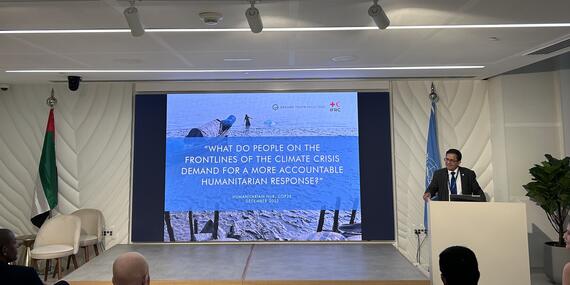Day five @the Hub

By Ghalia Bouran
Are we listening to the people we serve? Today we focus on an event that raised the question.
What do people on the frontlines of the climate crisis demand for a more accountable response? Organizer: Ground Truth Solutions: Some panellists voiced with concern that there was a big disconnect between humanitarian workers and people receiving aid. People on frontlines of climate crisis do not feel they cannot influence programmes and that they are not heard.
Xavier Castellanos Mosquera, Under-Secretary-General for National Society Development and Operations Coordination with the International Federation of the Red Cross and the Red Crescent noted, that if the aid community did not put people at the centre of response, then it will fail at what it sets out to do.
Panellists cited three key components of commitment that should be made by aid workers to affected people: be ready to learn from community, understand values that drives communities, beliefs and attitudes and build on their capacity, only then you can really move into humanitarian engagement.
A question was asked - could local organizations say no to certain aid programmes and leverage control of other resources? Local organizations should play an important part in humanitarian sector and be supported by bigger funders through advocacy and partnerships. It was underlined that it was important to build local capacities to respond to any crisis.
Coping mechanisms of individuals, families and communities really need to be understood as only then we can grasp what is needed at the different levels, was another key message from the event.
